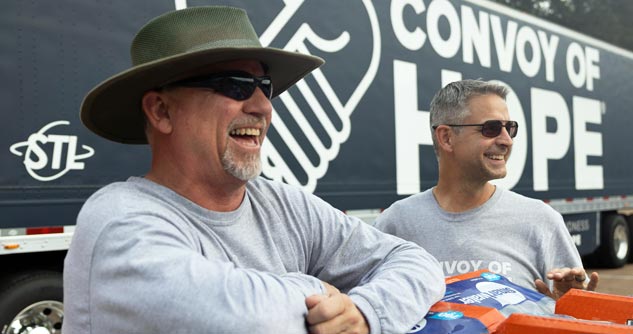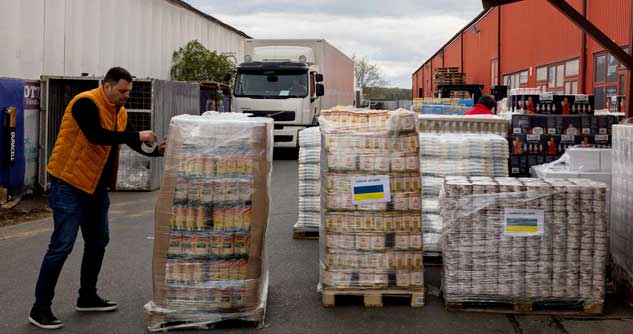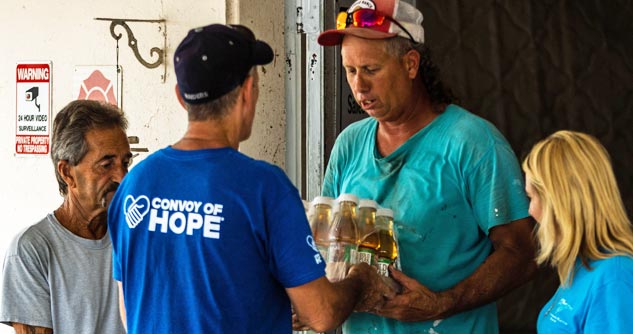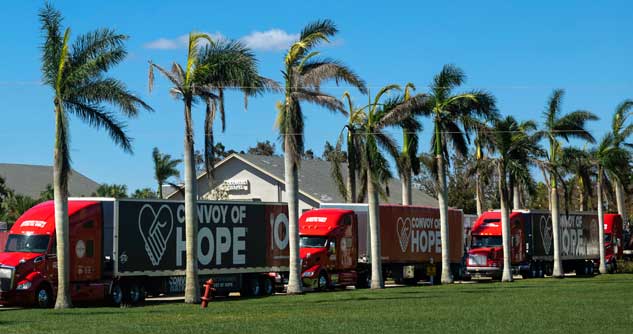(Air1 Closer Look) - “Young man, what are you doing to help the poor and suffering?” Hal Donaldson was pierced to his soul by her words. “Everyone can do something.”
Donaldson was interviewing Mother Teresa when she asked him the question that would inspire him to launch Convoy of Hope. He went home, bought $600 groceries for hungry neighbors and in the years since 1994, the international ministry he founded has given away around $2-Billion of relief supplies worldwide. “What we’re giving is hope,” says Ethan Forhetz, Convoy VP of Public Engagement. “We’re thrilled to be able to surpass 200-million people served – it’s amazing to reflect back on how it started – it’s really a testament to how the Lord has grown this organization.”

Convoy, headquartered in Springfield MO, sprouted from that single act of kindness into what is now a massive network of 400 employees, on-the-ready and equipped for emergencies. “A fleet of trucks – more than 30 semi tractor trailers, an entire fleet of disaster response vehicles – a team of people in this country and around the world that meet the needs of people all over the globe.” The ministry typically delivers basics like food, water and hygiene kits or specialty items like chain saws or space heaters to the aftermath of hurricanes like Ian, Fiona or Ida and even to war zones like Ukraine.

“We prepare as if we’re going to be needed for every disaster we hear about,” Forhetz explains, yet, “to be good stewards we wait to be invited,” most often by local churches. “They know the community so well – they know where the storm hit – they can give us real time information about what the need is.” Convoy’s deep respect for these local “strategic partnerships” is credited for its success and reputation as a trusted charity.

Beyond emergency response, “the thing we strive to do is end generational poverty,” says Forhetz. “ Giving people education and support they need to build, re-build and to feed themselves, “that’s our goal top to bottom.” Convoy’s Initiatives offer soil experts to local farmers, feed hungry children and provide capital to help women start small businesses. “We did a study in Ethiopia after the Women’s Empowerment program – we’re happy to say 100% of the women were still in business six years later,” he says, and a farmer in Nepal assisted by Convoy’s Agriculture program increased his income from 1,500 rupees to 60,000 – “that’s an unbelievable, life-changing increase, and that’s what we’re seeing time and time again.”
In the United States, Convoy helps small-town America through Rural Initiatives and Community Events, where small but crucial needs like backpacks full of school supplies or free haircuts are provided alongside local churches. “We let them handle the distribution – we supply them with all the product – and so the people are looking to their community church for help.” Convoy is planning about 100 neighborhood events nationwide in 2023.
Looking ahead, Forhetz warns there is a devastating famine on the horizon in Africa, “Convoy has been on the ground floor of that,” adding, “there’s no shortage of needs out there -- and that’s not even counting the natural disasters that we don’t yet know about.”
That doesn’t scare Convoy. “We are prepared for it. Our disaster services team is really like a group of firefighters who are ready for that bell to ring.”


